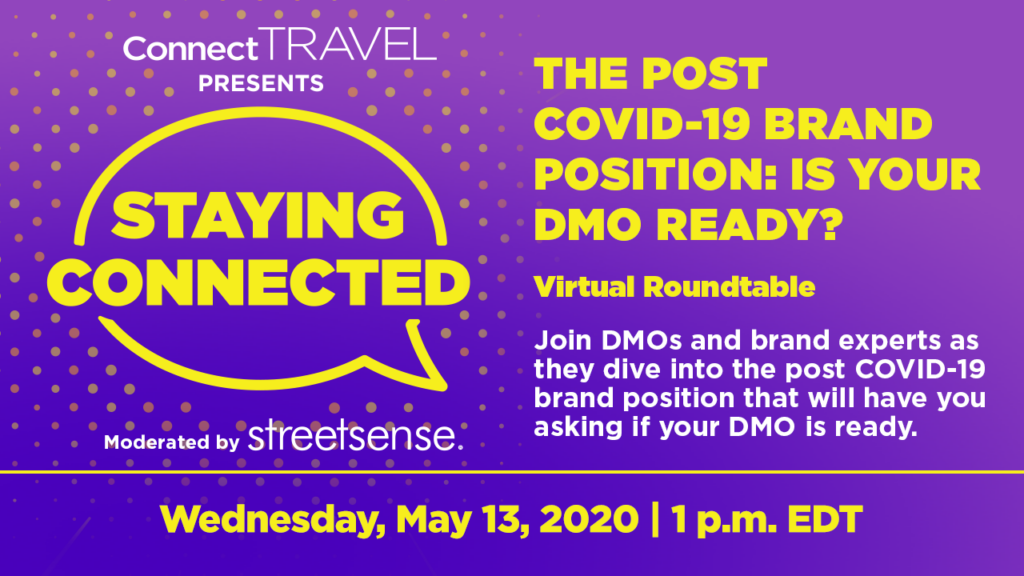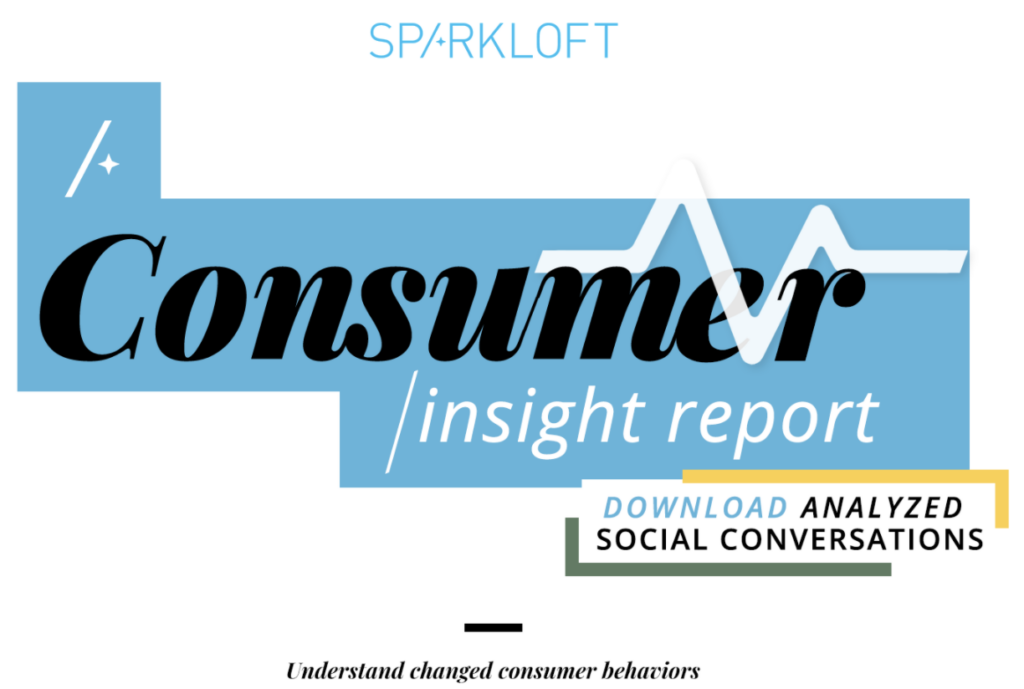
As the world is rapidly changing, consumers are on social media talking about these changes and their impact. Sparkloft Media uses state-of-the-art tools and processes to analyze social conversations, generating insights for specific topics or themes.
This data is more timely and is a less expensive way to gain insights and context compared to other qualitative research methods (such as focus groups or phone panels).
These Consumer Insight Reports insights are published weekly by the Sparkloft data team because the world is changing too fast to do these reports on a monthly basis.
Related: Webinar #7: How Destinations Are Using Social Media Now and Into the Next Normal

Last week’s “Staying Connected” Webinar #6 panel discussion that included Martin Stoll, Sparkloft CEO, sparked (pun intended) a good deal of interest.
So, The Travel Vertical asked Martin for a Q&A to explore his ideas a bit more.
Q: As DMOs struggle to understand post-crisis consumers, what does your research indicate about sentiment?
A: We have done research on social sentiment in the US and Canada:
- Regarding COVID-19 in general, travel, sentiment towards hospitality, sentiment on the economic development, etc.
- We do the research using a social sentiment tool that shows volume of conversation, key themes, sentiment, etc.
- We have also done sentiment reports to understand what people are saying in a destination vs. about a destination (locals vs. potential visitors).
- And we have run reports that show changes over time.

Here is what we have found that is relevant for DMOs:
- Consumers are thinking VERY differently than they did 10 weeks ago (I think that goes for all of us).
- In regards to travel, we see that consumers want to know what is being done in a destination to make it a safe place from a health perspective.
- The handling of shelter-in-place / quarantine and how things are being opened up, etc. has become very political; DMOs will get caught in the middle.
- As soon as they start marketing, they will get push-back from people who think it is too early to travel and that promoting travel is irresponsible.
- We predict you will also increasingly see locals pushing back on visitors coming to their “town.”
- Nostalgia is a theme that gets people taking a lot, this might be an opportunity for DMOs to do something with.
- Everything is online now, social media use continues to rise, so an even bigger focus than before should be on digital.

Q: Does the research reveal any surprises?
A: For me, the biggest surprise was that we could see a lot of the trends bubble up in social media 2-3 weeks before the “mainstream” media would talk about it. The other thing that was astonishing (more than surprising) is how much the thinking of consumers has changed so quickly and to have the data to show these changes.
Q. Consumer sentiment surveys indicate that significant percentages of travelers have changed their destination plans. Are there clever ways to reach prospective travelers?
A: I think DMOs need to completely rethink their marketing approach.
- Safety / health is a key concern now. DMOs did not have to talk about that before.
- COVID-19 has affected people very differently on a personal level; that needs to be reflected in the communication to them.
- More than ever, channels that allow marketers to be very surgical in their targeting should bring much better results, e.g., very targeted Facebook dark posts.
- But those posts need messaging and creative that is very specific for the targeted audience.
- I think flare-ups and regional closures might be in our future, so from a media perspective I would focus on only digital and other things that can be switched off with the click of a button.
Q: What about local, day-trippers and drive market repeat visitors? Should these audiences get a marketing focus and how can they best be reached?
A: All the research shows that those are good target audiences, but in my opinion those are too broad as categories for marketing.
- Many DMOs are funded by hotel tax, so it should be a priority to get people to visit who come from far enough away that they will stay overnight.
- So you need to think about which people in drive markets are most likely to stay at a hotel: kids / no kids, what household income, which interests. etc.
Q: You recommend “more surgical targeting.” Can you comments on these demographics and why they’re of interest?
A: Those were just some examples of groups who can easily be identified and served hyper-targeted ads on social channels. There are so many more audiences like this that could be highly relevant. A lot depends on the DMO and their product and for whom that product is appealing.
- Politically right-leaning;
=> Our research indicates people who lean Republican are probably more likely to go back to traveling earlier.

- Mothers who have been home schooling (no summer camps);
=> Very easy to target, and with camps cancelled they have to figure out what to do.
=> The home-schooling is a reference to all parents doing home-schooling now and the hardship that comes with it.
- People who were planning cruises or long-haul / international trips;
=> There are DMOs who now have the opportunity to target travelers who did not consider them for a summer vacation because they would go to Europe in the summer, for instance.
=> People who have traveled to Europe every summer will probably still travel this summer as it is part of their lifestyle and identity.
=> But getting to Europe might be difficult this summer, their financial situation might have changed, so now they may do a domestic trip.

How does a DMO target those people who just never thought about a road trip in the US in the summer before? You need to identify those people and then have a very specific message for them that makes them consider your destination.
- Healthcare workers
=> They might be less worried about COVID-19, but are definitely over-worked and in need of a well deserved vacation.
Sparkloft Media is an award-winning social-first creative agency with a team of 50 in Portland, Atlanta and Washington, D.C. Sparkloft CEO Martin Stoll has been a frequent speaker at eTourism Summit and is a member of the eTourism Summit Advisory Board.
